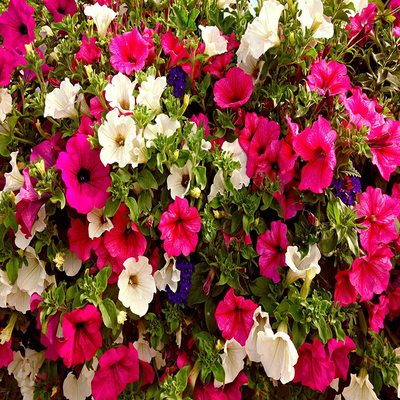
petunia mix seeds
 Gangagardens
Gangagardens
Often grown as annuals, petunias are one of the most popular flowers because of their long flowering period. As with most annuals, they get leggy by midsummer, so you’ll want to prune the shoots back to about half their length
Images are for reference purposes only.
Actual product may vary in shape or appearance based on climate, age, height, etc.
The product is replaceable but not returnable.
Item Details
SKU
AVPETSED40
How to plant petunia
Petunias need full sun or they will become spindly. They don’t tend to flower in the shade. They are quite versatile, growing in different types of soil, but it is important that the soil drains well and doesn’t stay wet. You can grow petunias from seeds, but it is easier to grow them from transplants. If you are going to grow from seeds, start them indoors about 10 weeks before you want to set them outside. Petunia seeds are very small (dust-like!) and needs lots of light in order to germinate. Remember to water them. When the plants have three leaves, you can plant them outside. It’s best to buy young plants from a nursery which often sells petunias in flats. Look for plants that are short and compact, not leggy and not yet blooming and they’ll settle in faster. Plant after the last spring frost. (See your local frost dates) in a place that is sheltered from wind exposure. Keep well watered. Space the plants about 1 foot apart. If you’re planting petunias in containers, use a soil-less mix.
Care
Petunias are tolerant of heat so you don’t have to water them regularly. A thorough watering once a week should be sufficient (unless there are prolonged periods of drought in your area). Avoid watering shallowly as this encourages shallow roots. Note: The spreading types of petunias and those in containers require more frequent watering. Fertilize petunias monthly with a balanced fertilizer to support their rapid growth and heavy blooming. Double-flowered cultivars like a biweekly dose of fertilizer.
Pests/Diseases
Petunias have few serious insect or disease pests. Avoid wetting the foliage and flowers when watering to help prevent disease. Aphids Slugs
_-_Bulbs_(set_of_10)_2.webp)
_-_Bulbs_(set_of_10)_3.webp)